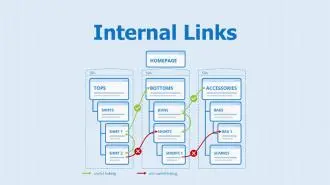Summary / TL;DR
Keywords are specific words or phrases users enter into search engines to find information, forming the foundation of digital marketing strategies like SEO, content marketing, and PPC. Effective keyword selection helps improve search rankings and attract organic traffic by aligning website content with user intent. Marketers use keyword research tools to assess search volume, competition, difficulty, value, and intent to select suitable terms. Long-tail keywords, although lower in volume, often attract highly targeted traffic and convert better due to their specific nature. Using keywords naturally and strategically is crucial, as search engines penalise practices like keyword stuffing.
If you’ve dipped even a toe into the world of digital marketing, you’ve probably come across the term “keywords.”
After all, without keywords, the entire digital marketing industry, especially SEO (Search Engine Optimisation) and SEM (Search Engine Marketing), would be at a loss. Keywords are the pillars on which digital marketing turns that you need to find and help searchers and brands meet each other.

So, what are these keywords anyway? Why are they so crucial, and how do you figure out which ones to use? We’ll dive into these questions and more, so stick with us to find out.
Let’s dive in and get the ball rolling!
What Are Keywords?
In plain terms, keywords are search terms that users put into the search query box or include in the meta description. For example, if you’re looking for the best movie to watch this weekend, you’d type in a search similar to how people search for ‘the best sci-fi movies’ or something similar.
Now, which is the keyword here? As digital marketing and keyword researching are concerned, the entire phrase many people type into the search bar qualifies as a keyword. This can be a single word, multiple words, or even fully formed questions.
Your keyword strategy determines how search engines return results. Include the right keywords on your website, and it’ll show up on SERPs. By targeting relevant seed keywords and tailoring competitive ones, you can boost organic traffic to your site.
Even though getting your website to appear in the top spot on Google isn’t that straightforward, that’s because nobody knows how search engine algorithms work (don’t believe anyone who tells you otherwise). Digital marketing experts can only make educated guesses based on observations and experimental metrics.
Even that’s enough to tell you that keyword research is vital in all aspects of digital marketing, something to keep in mind.
Why Are Keywords Important For Digital Marketing?
Let’s face facts: any marketing campaign aims to acquaint customers with brands using key elements like the title tag and services they’d like to engage with. Digital marketing is no different; it only operates on search engines and websites instead of billboards and adverts.
It’s evident that to align your business with customer needs, you need to know what they’re looking for in the first place. Keyword research helps you figure out which keywords to use, which is the key (pun intended) to discovering consumers’ interests and requirements.
You can get a good idea of the demand for products or services related to that keyword based on the number of searches for a particular search term (called search volume in SEO terminology). Search volume is an excellent indicator of which keywords you need to target.
If you can include the right keywords in your SEO or SEM campaigns, you stand a good chance of appearing against the search results for those keywords. This is the number one reason that makes keywords so important.
However, there’s a catch. You’re not the only one in your industry, and you’re certainly not the only business using keyword research tools to target essential words and keyword phrases. The higher the volume for a relevant keyword, the greater the competition for ranking for it.
That’s why it’s vital to diligently research relevant keywords and target keywords you have a good chance of ranking for. You can do this using multiple ways, of which the most prominent are SEO, Content Marketing and PPC.
To find out more about keyword research, follow our comprehensive guide below.
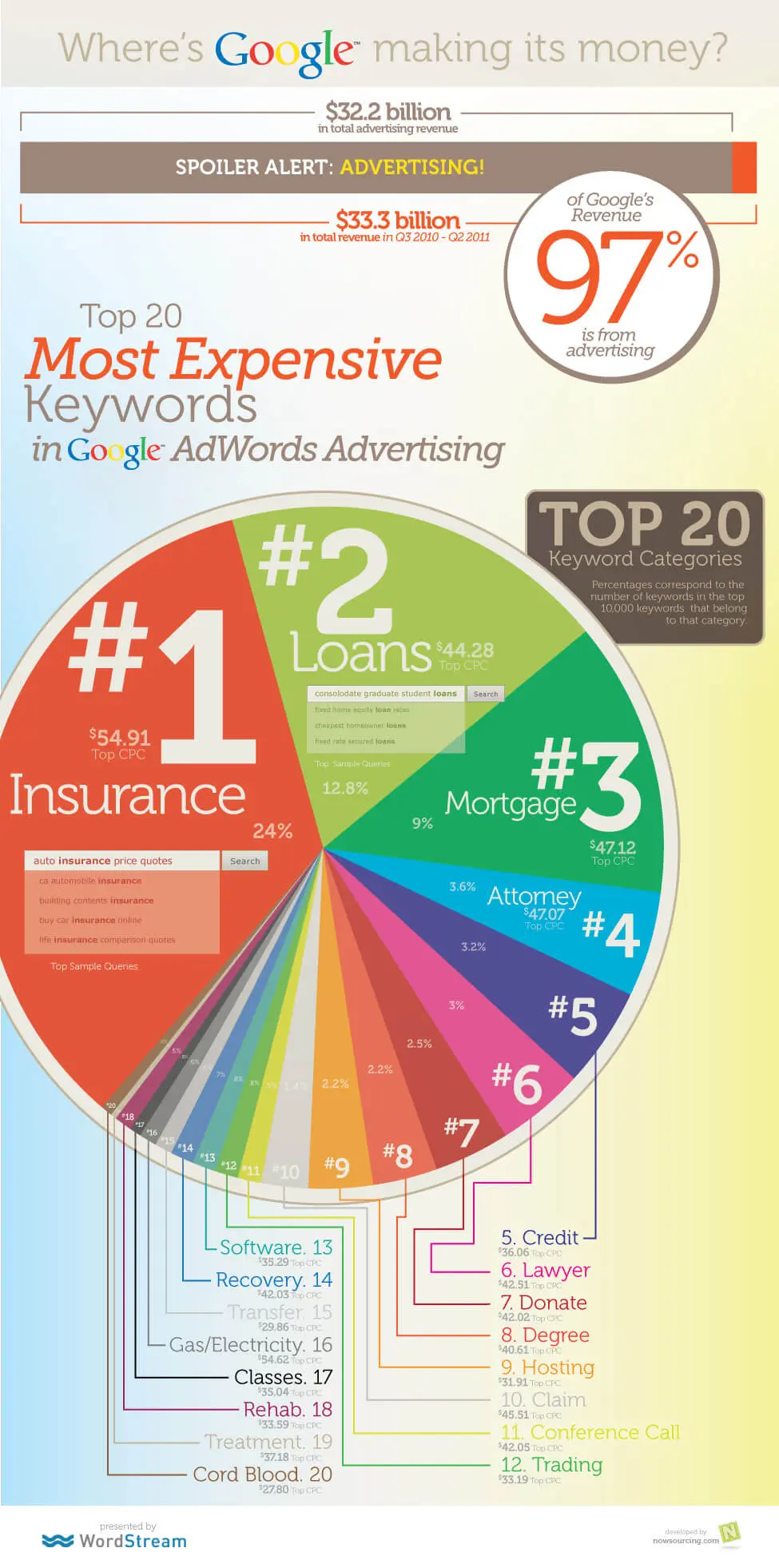
Want to receive updates? Sign up to our newsletter
Each time a new blog is posted, you’ll receive a notification, it’s really that simple.
How To Use Keywords For Ranking On Google SERPs
You undoubtedly already understand that just targeting and including the right keywords in your website content and blog posts isn’t enough to drive organic traffic. It would be best to use them appropriately to improve your ranking on Google. According to the latest estimates, nearly 75% of all search traffic gets lapped up by the top three links on the SERPs. That’s where you’d ideally want to be.
That’s where SEO, Content Marketing, and PPC (or SEM, as it’s also called) come into play. In the following sections, we will briefly look at each method and understand how they use keywords to improve your business presence on the SERPs.
Search Engine Optimisation And Content Marketing
SEO and Content Marketing are considered by many to be the best methods of ranking on Google (and other search engines). These techniques include the keywords and phrases you want to target in your website content. Specific keywords can be included in any content, such as a blog post, on your web page, meta titles, meta descriptions, or any other web content you can use to create content.

Suppose you’re selling sports shoes. You might create content like ’10 Best Sports Shoes Under $300’, using essential keywords that searchers are likely to use. When someone searches for that topic, your article could appear on the SERPs, making it a practical strategy.
How can you ensure that you get a good rank on Google? The truth is, there’s no fixed way to ensure that. The best you can do is put out quality content on your website, make honest efforts to answer customers’ queries, and stick to white-hat SEO and an effective content strategy.
Here, it’s important to mention that today’s search engines have advanced a lot from the days when you could stuff keywords into your category pages, and they’d rank automatically. Now, AI in search engines has advanced to the level where black-hat techniques such as keyword stuffing can invite penalties. So, choose your SEO keyword wisely and stick to less competitive, legitimate ranking methods.
Search Engine Marketing
The following method for using specific keywords is search engine marketing, also known as pay-per-click advertising. In this form of digital marketing, you first use a keyword research tool to choose keywords relevant to your business. Then, the target keywords are fed into a PPC ad system, such as Google Ads.
Once you’ve set up your PPC campaign with a list of keywords you’re targeting, including those same keywords, the Google Ads system will show your website (or landing page) link when users search for the targeted keywords. You need to pay for that click whenever a user clicks on your link in your bid to rank higher.
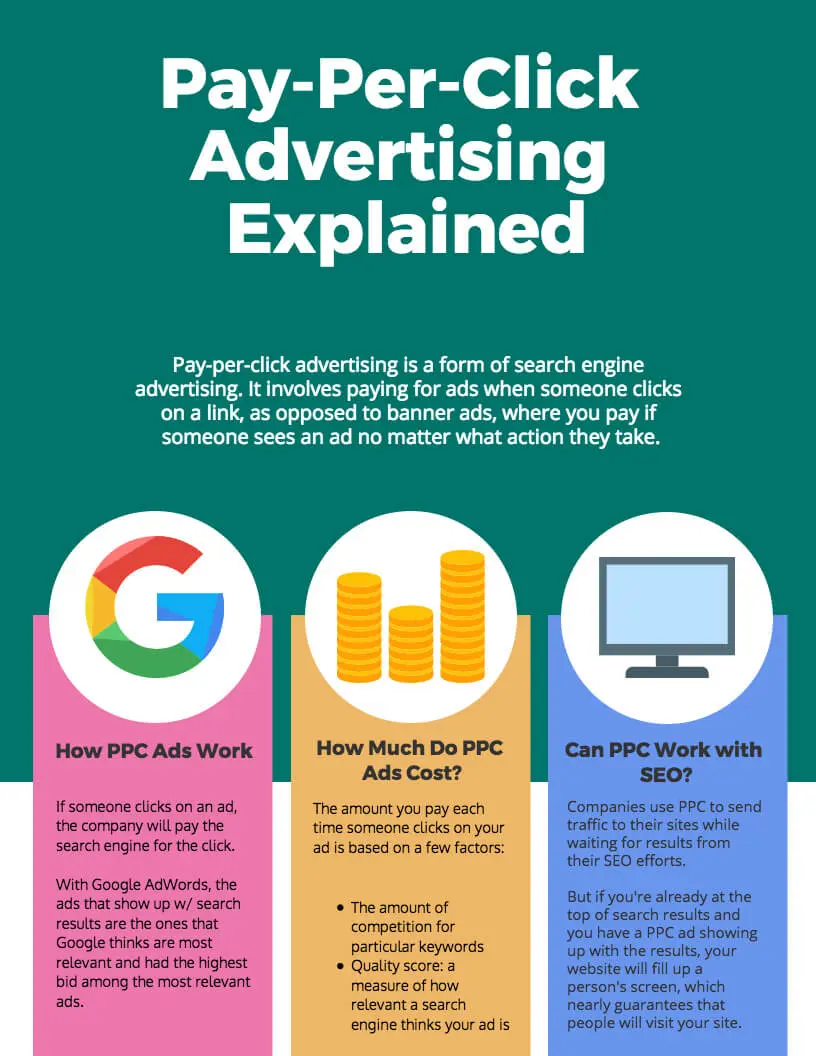
How do search engines determine which ads to show in which position? This is calculated using a relevancy score (the quality score). It’s a complex metric considering multiple ad quality, relevance, and maximum bid amount to calculate the ad position.
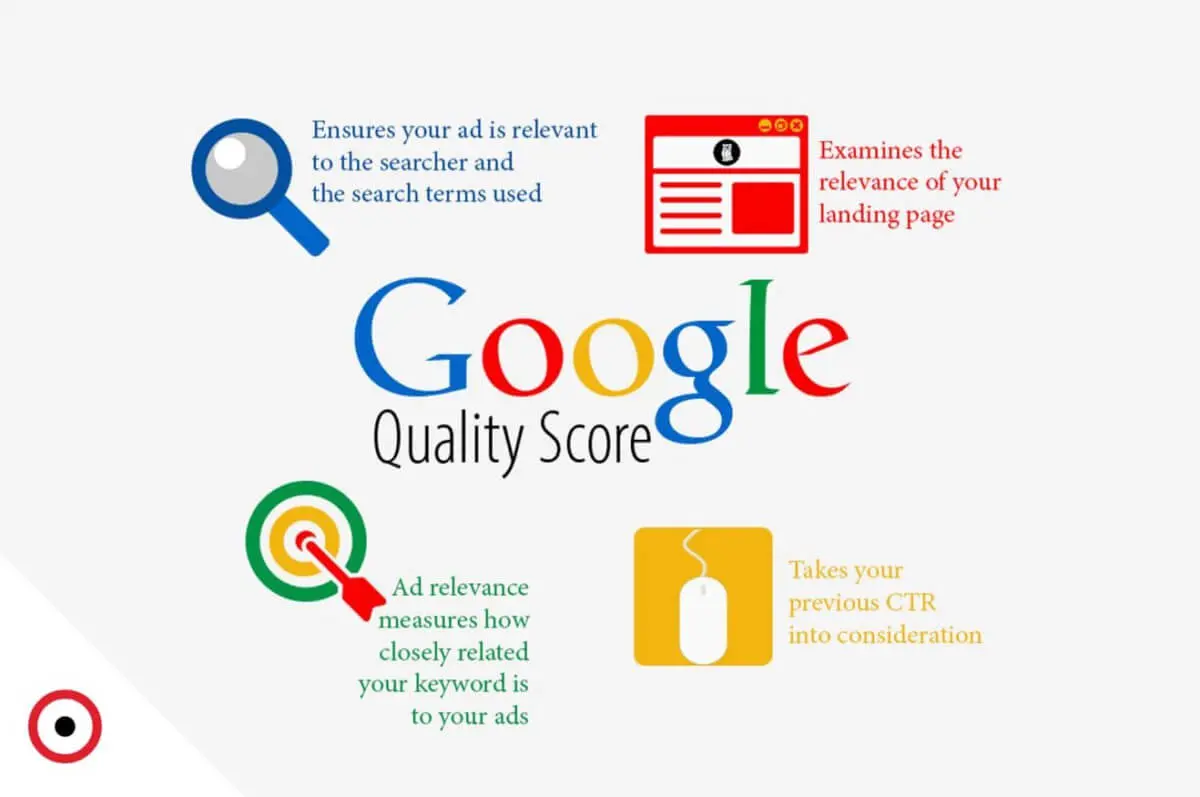
Which Is Better?
Now that you know about SEO, content marketing, and PPC, which one is better for your business? You might have already guessed there’s no one-size-fits-all answer to this question. SEO and content marketing are long-term efforts that help build a solid organic search ranking and help you track keyword rankings, but they take time and effort.
In contrast, PPC helps when you want to rank for keywords very fast and improve traffic in the short term. So, it’s best to use all three methods to get ideal results with every piece of content.
Where To Look For Keywords?
As a business owner, you know your target audience’s terms to search for products/services in your niche. However, it’s impossible to guess all the SEO keywords relevant to your business. That’s where using a tool like keyword research really comes into play.
Keyword research is deciding which keywords are best suited for drawing more visitors to your website. The best way to perform this research is to use a keyword research tool, such as Ahrefs keyword explorer, Google Keyword Planner, and Answer The Public.
Most of these tools work similarly: you need to enter a few broad search terms related to your search, and the tool returns keyword suggestions or related keyword suggestions that searchers are using. You can select keywords for SEO, PPC, and content marketing using insights from SEO tips.
But, as always, there’s a catch.
What To Look Out For When Choosing Keywords
Whichever tool you use to find keywords for SEO, you can be sure that it will spit out hundreds, if not thousands, of results. So, how do you select the best, most important keywords for search engines to find, keywords to help create content? That’s what we’re going to discuss in this section. The following is a list of factors that you need to look out for when selecting words and phrases as keywords.
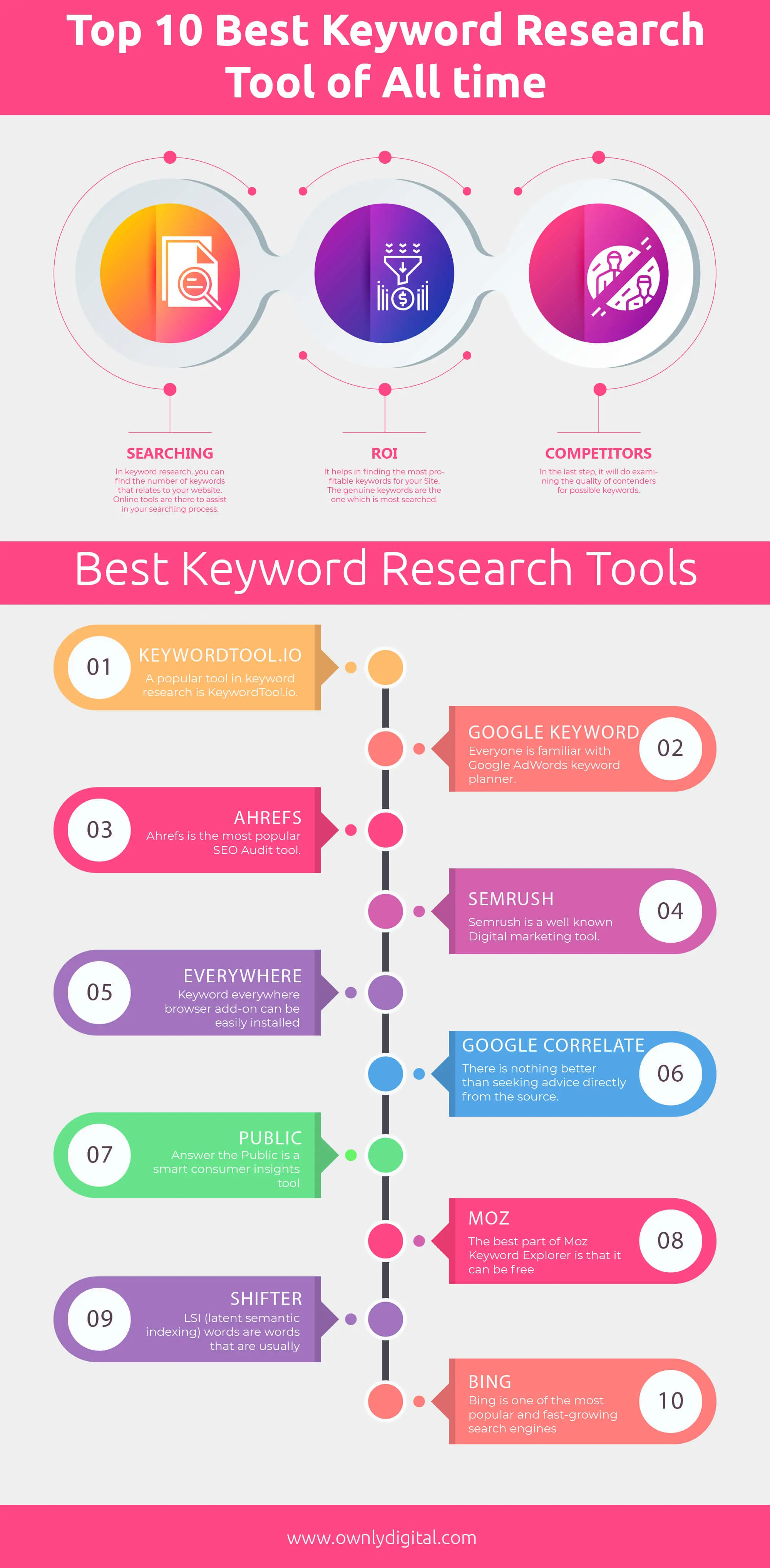
1. Keyword Search Volume
Search volume estimates the number of searches a particular keyword attracts in a specific period. Most keyword research tools measure this metric monthly. The greater the search volume for a specific keyword, the more visitors it will likely draw to your site.
However, it’s important to mention that high search volume alone is insufficient for choosing keywords/phrases. Keeping the keyword’s relevance, competition, and intent in mind would be best. Let’s take a look at what these are in the next section.
2. Keyword Difficulty
So, you’ve found the keyword tools you’d like to use and used them to find keywords with a high monthly search volume of traffic. That’s all good, but it doesn’t mean you should begin to optimise your website for those keywords right away. If ranking on Google Search were that easy, everyone would occupy the top spot (which, as you understand, isn’t possible).
Typically, high-volume keywords are tough nuts to crack. Many sites might already be ranking for them, making it challenging for SEO newcomers to rank quickly with these keywords.
When selecting the best keywords, you must reach a trade-off between search volume and keyword difficulty. In this situation, long-tail keywords can help (more on that later) you target search queries with more specific intent.
3. Keyword Value/Price
This metric is most important in the context of PPC, where you have to evaluate the cost of keywords on a per-click basis. Usually, the greater the competition for a keyword, the more you have to pay for it. It would help if you considered this metric before optimising a strategy or using keyword tools.
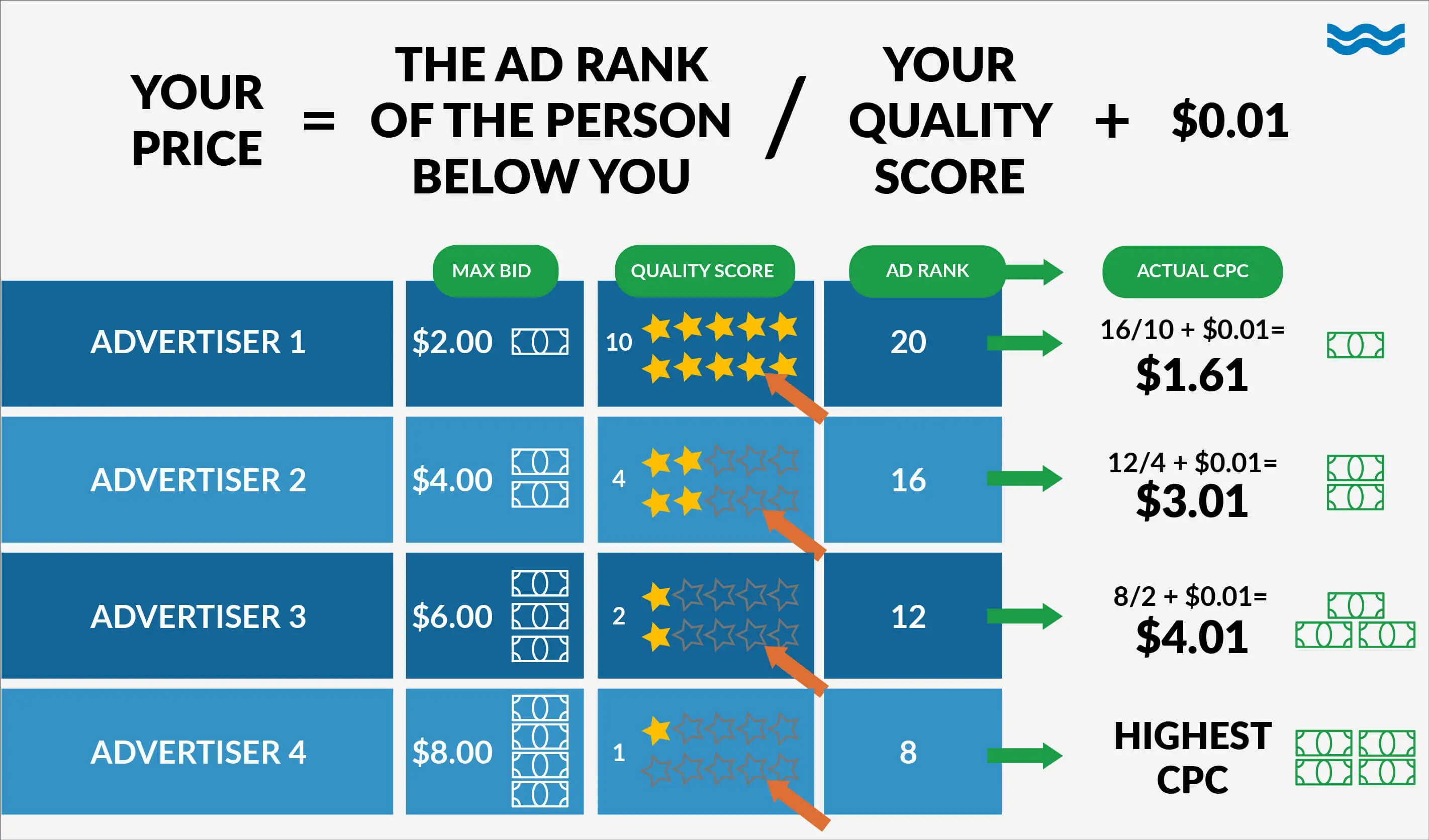
However, price and value aren’t always synonymous, as a high-priced keyword might not be relevant to your PPC strategy. So, always ensure you’re targeting related keywords and not blindly going for the high monthly search volume and high-price keywords. The value of a keyword varies from business to business, so what’s gold for you might be garbage for another.
4. Keyword Intent
As mentioned, keyword use is no longer as simple as stuffing them in the content. Today, search engines are great at gauging keyword search intent, so as someone uses keywords, you have to do the same.
Keyword search intent refers to the specific intention behind a searcher’s query. When looking at keywords for SEO, there can be three search intents behind SEO keywords:
- Transactional — When the searcher wants to buy something
- Informational — When the searcher wants to know something
- Navigational — When the searcher wants to get somewhere
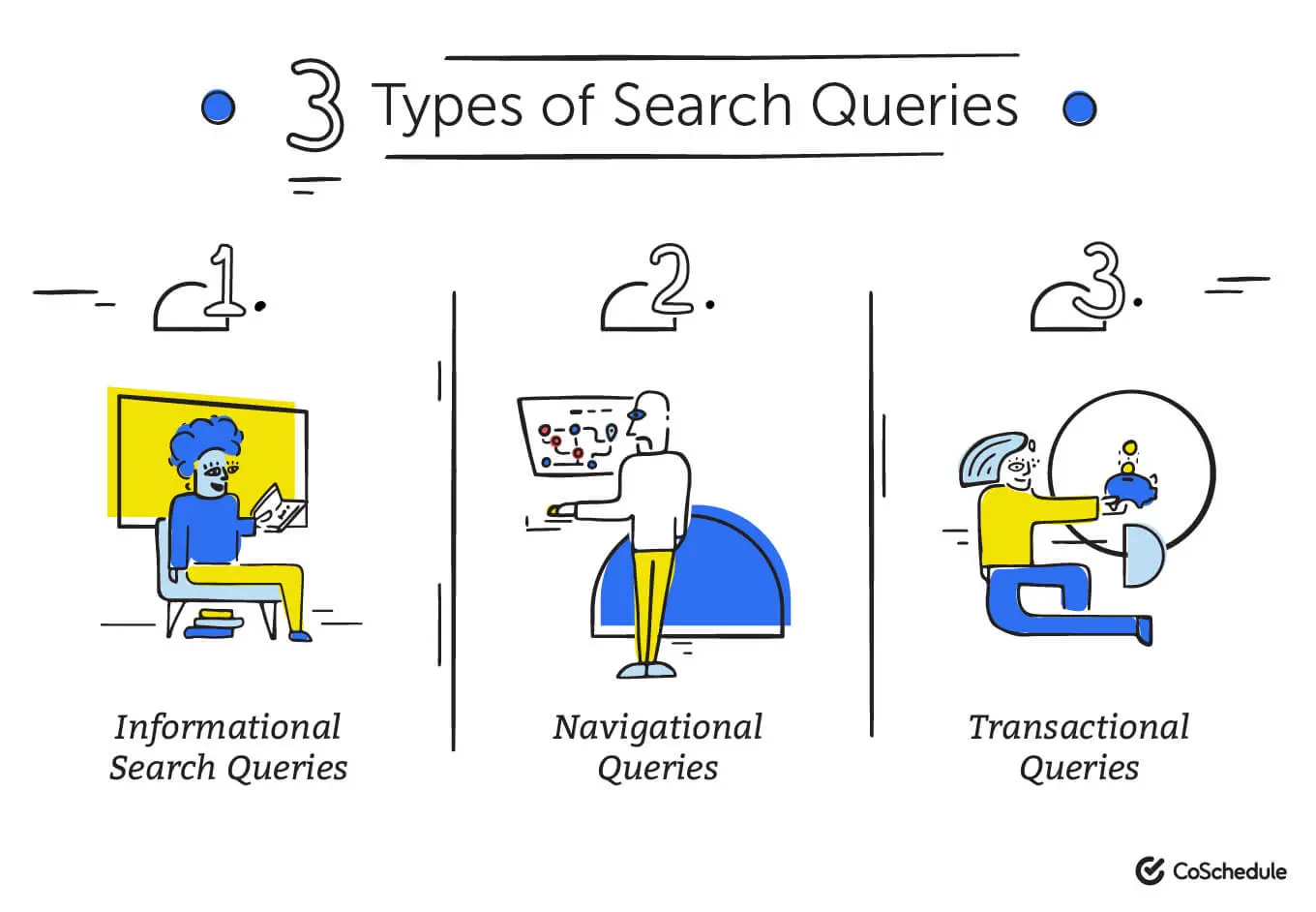
Once you’ve understood a keyword’s intent, optimising SEO/PPC strategies to support the same becomes easier.
Special Mention: What Are Long Tail Keywords?
We’ve mentioned long-tail keywords several times throughout our discussion, so now it’s time to look at what they are. Long-tail keywords are keywords that have low search volumes but high intent. Usually, targeting long-tail keywords, often search query variations, results in more excellent conversion rates.
Targeting long-tail keywords can help your business stand tall among the competition and provide specific, targeted, relevant results to customers’ queries. Long-tail keywords can also include geographically exact keywords (called geo-targeted SEO keywords).
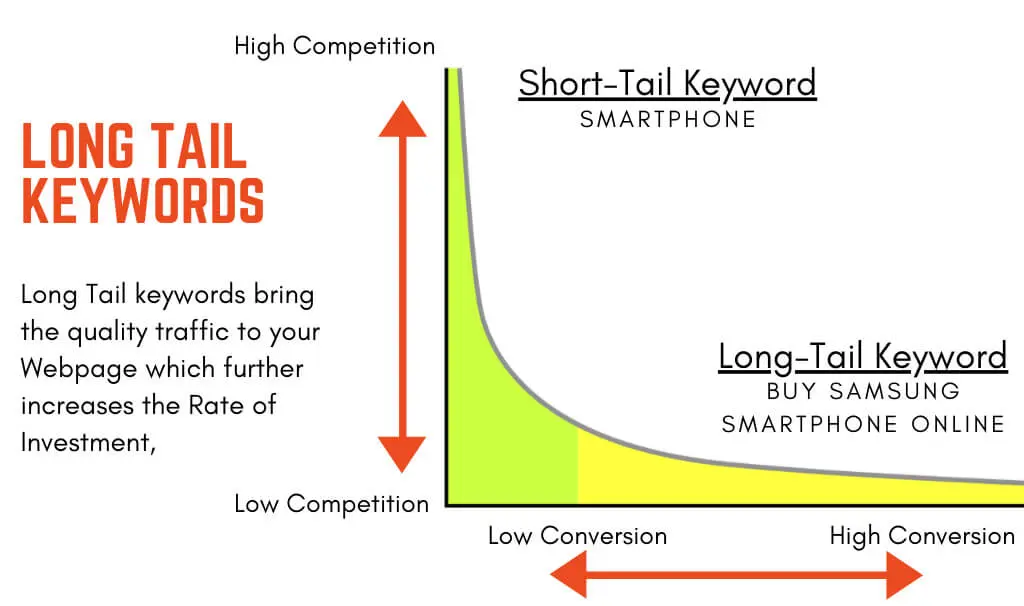
Now You Understand Keywords!
Whether it’s SEO or PPC, Google Search Console or Google Analytics, if you’re dabbling in these technologies, you’re sure to come across the importance of keywords. Choosing your primary keyword is one of the most important things from this article. These phrases form the basis of most SEO tools, and including these words relevantly in a webpage can work wonders for SERP rankings.
Especially when it comes to SEO, keywords play a vital role. Once you choose the right words to include in your content, you can be sure to drive more significant traffic to your website. Long-tail keywords are particularly great for driving high-intent traffic.
One warning before saying goodbye: when including keywords in content, ensure the text is easy to read and flows naturally. Forcing keywords where they read odd can make it hard for readers to read and understand the text. So, choose your queries wisely and insert them as naturally as possible. This will give your website and content a better chance of ranking.





